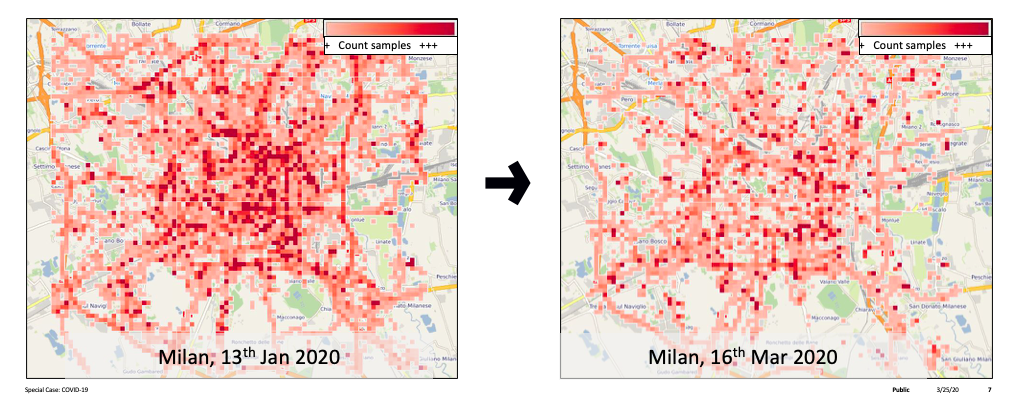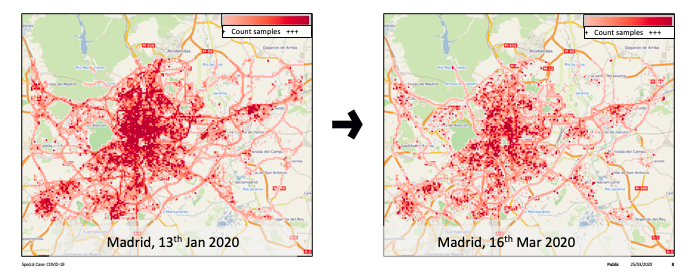There are significant decreases in mobility happening across Europe as COVID-19 spreads through the region, according to new data analysis from network benchmarking company umlaut.
umlaut, formerly P3, gathers its crowd-sourced data from devices that have apps which include its anonymized data collection working in the background. It is integrated with hundreds of Android apps installed on 200 million devices around the world.
In a newly available report on COVID-19 impacts to European metropolitan networks, the company examines data from Berlin, Germany; Madrid, Spain; and Milan, Italy. Its data on the distance that devices move each day in those cities shows the impact on device mobility of social distancing and government-ordered lockdowns. In particular, in Milan, which had the earliest lockdown in Europe, showed a steep decrease in the movement of devices and the people who carry them.
umlaut also offered up heat maps of user density and duration of stay across those three cities, comparing January 13 to March 16. All three cities saw a distinct drop in both categories, with Milan showing a particularly drastic fall-off in mobile activity.

After the lockdown in the Lombardy region, umlaut said, device time spent indoors and Wi-Fi traffic increased dramatically. Indoor time was recognized in the data when a device registered as being near a Wi-Fi access point.
umlaut noted some variability across the different countries, which reflects the relative impact of COVID-19 at this point in the pandemic. Milan, in the hard-hit Lombardy of Italy, saw an abrupt “drastic shrinkage” in mobile device movement and the duration that people stayed in the city. That area was also the focus of some of the earliest shut-downs in Europe, with Milan subject to closings prior to the nationwide Italian lock-down on March 9. Comparatively, in the same March timeframe, Madrid, Spain, saw fewer visits from people and they didn’t stay as long in certain areas compared to January, but it was not as consistent across the entire city. Spain ordered its national lock-down on March 14. Meanwhile, in Berlin, changes between January and March were not as drastic, even thought the data from March 16 does show somewhat of a decrease in mobile device movement. Germany has not gone to a complete shut-down at this point but adopted strict social distancing guidelines on March 22.
umlaut is already beginning to look at network impacts in the U.S. as well, concluding that California has been seeing an increase in Wi-Fi time and traffic-share since March 14.

